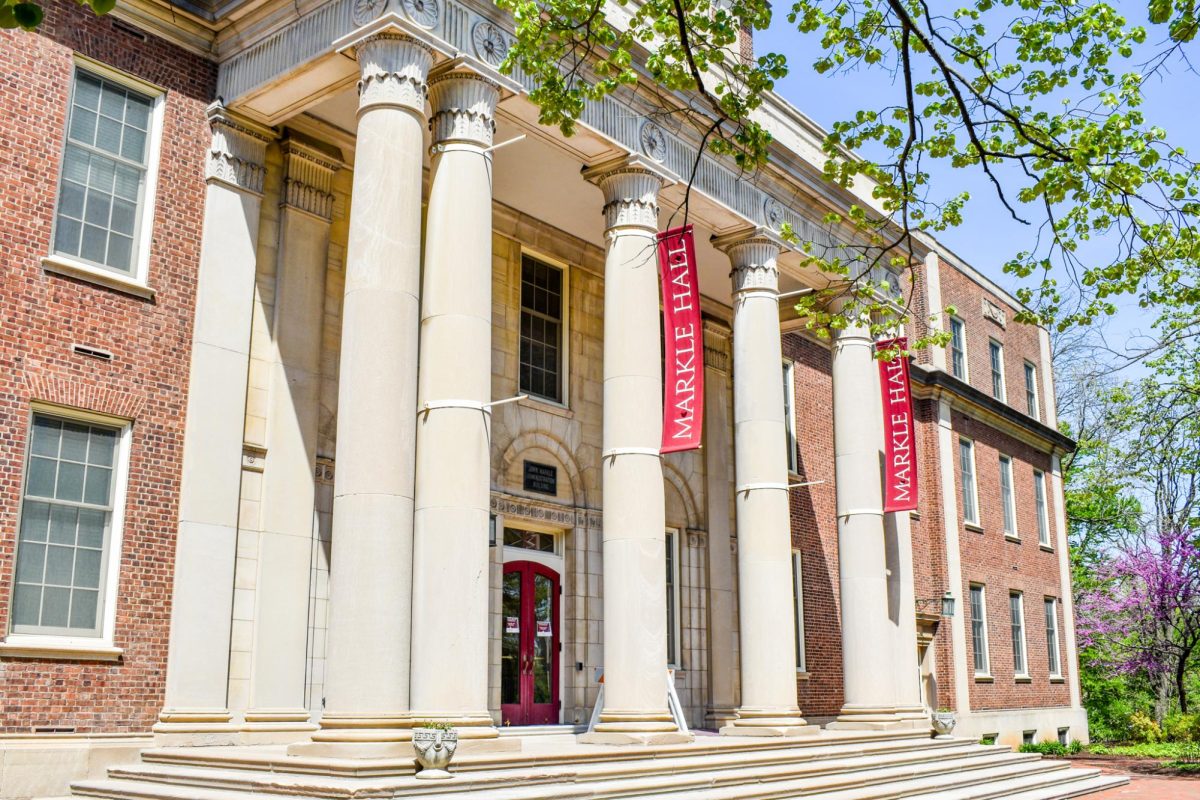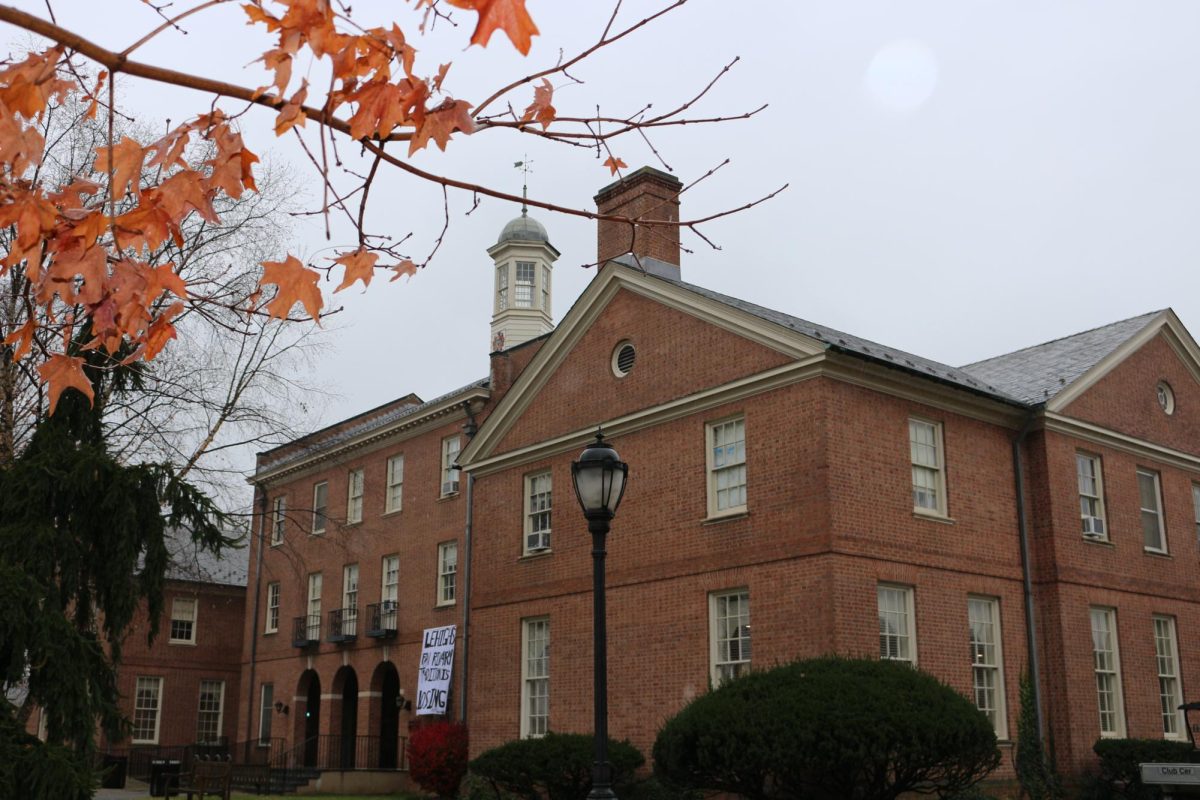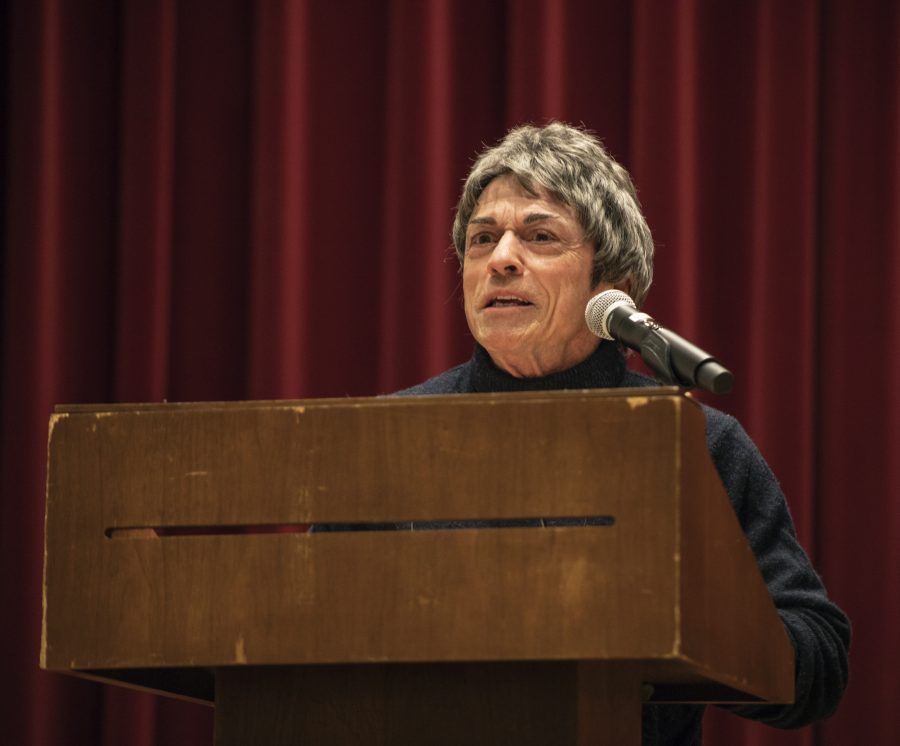Renowned queer activist and NY-Times Bestseller Rita Mae Brown emphasized the idea that taking on an identity given by the “oppressor” is giving into their power.
Her talk was sponsored by the Women’s & Gender Studies Program, Friends of Skillman Library, the Queer Archives Project and the English Department.
In 1970, Brown resigned from the National Organization for Women (NOW) of Betty Friedan’s, the author of “The Feminine Mystique” is commonly known as a leading figure for the women’s movement. She expresses her discontent with the exclusion of lesbians in the women’s movement.
In a NOW conference, Brown and other lesbian feminists shut off the lights and shortly after, revealed a shirt that said “Lavender Menace,” as a way to reclaim the label that Friedan placed on lesbians.
Brown has written thirteen literary novels and several books of poetry and non-fiction. Her most renowned novel “Rubyfruit Jungle” (1973) has won The Lambda Literary Pioneer Award and The Lee Lynch Classic Book Award. She has also written Emmy-award winning screenplays.
Addressing people by the LGBT acronyms robs people of their individuality, Brown said.
“What I find extraordinary is that I can’t address you as [LGBT] alphabet-suit people because if I do that, I robbed you of your individuality. I have lumped you in a group defined by your oppressors. If I take away your individuality, I am as bad as they are, nor do I care,” she said.
Although Brown recognizes that gays and people of color are oppressed because of those identities, she said that they have “everything in common with those who suffer from the same disadvantages.”
”It means you can make a political cause, but you are an individual and nobody is like you. People are like snowflakes, there are no two alike. I will never remove your individuality from you and lump in any way.”
Though sports and theater are ways to find that individuality, not everyone is able to do that, Brown said. What everyone has the ability to do is read.
“Every one of you can read. So, can you go back and remember the first book you read a book that opened the door to the world, and opened the door inside … a book you realized [that you’re no longer alone],” she said.
“If you go back and you look at these books that you’ve read, it is your inner roadmap. It is a roadmap of your emotions, it’s a roadmap of your life, and probably you never thought of it and … you’re still on this journey.”
She said that Lafayette gives students the opportunity to find that individuality.
“You may not be aware of it, but you’re very fortunate to be in a private institution, so you have more roams to actually explore your own individuality.”
According to Brown, America’s founding fathers read Latin, and some read Greek, but they all read Cicero and they were “fixated on a time of a Republic dying and the empire being born and the ideas about how we could preserve how our republic would come from that crisis…?”
“Because what do you do when a nation becomes huge? How can you govern it the way it was when it was small? Well, you can’t. And we were in that crisis over and over again as Americans.”
“[Modern Americans] have inherited that crisis and how do you balance that crisis when a constitution is geared toward Cicero?”
Brown said that, today, if one reads The Articles of Confederation, one would think that it did not work. However, it was the best thing they could do at the time because of the terror.
Brown urged students to “trust themselves” and know that wherever they might end up in life, they are meant to be there.






















































































































